Coronavirus: Crime 'back to pre-lockdown levels', police chief says
- Published
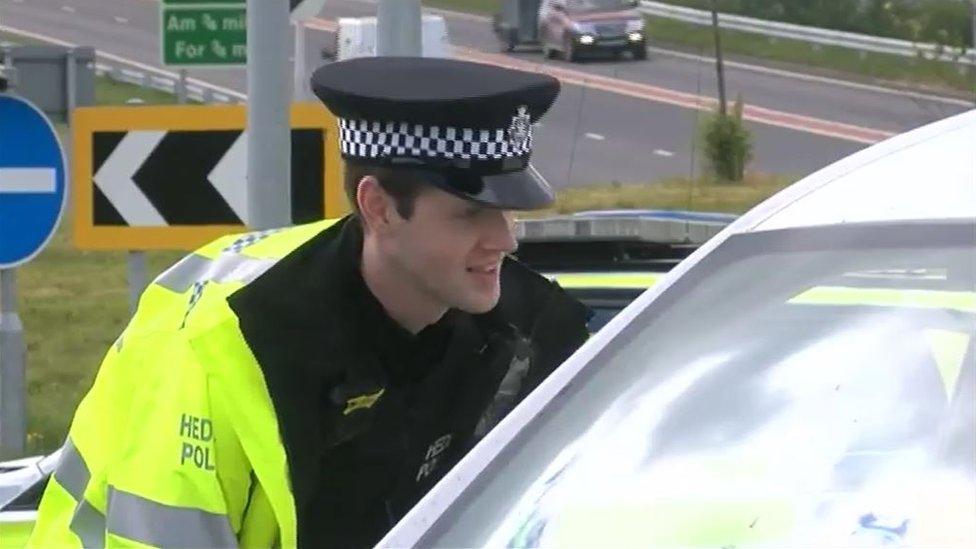
South Wales Police responded to 12,000 calls claiming people had broken lockdown regulations
Crime levels have risen back to pre-coronavirus levels despite the continuing lockdown, a chief constable has said.
Across Wales and England, crime fell by 28% during the first weeks of lockdown.
But South Wales Police chief constable Matt Jukes said there had been a surge in the number of domestic abuse cases and violent offences in recent weeks.
He said confusion over different lockdown rules in Wales and England had placed an additional burden on police.
Since the start of lockdown, more than 13,000 calls have been made to South Wales Police concerning coronavirus, Mr Jukes told a virtual Swansea University seminar.
About 12,000 of the calls were reports claiming people were breaching restrictions - but only 216 led to enforcement action.
Mr Jukes said it had not been clear to the public at each stage what they were expected to do.
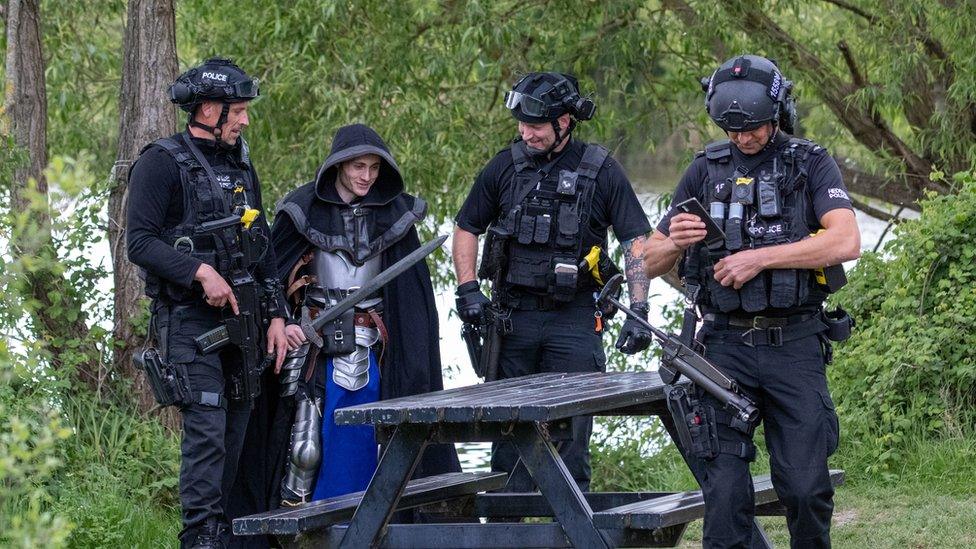
Police posed for pictures after being called to reports of a man with a sword in a Cardiff park
Since the start of lockdown Wales' police forces have shared reports of people breaking rules, including holding parties, travelling over 100 miles for a walk, and driving over the border from England for a day out on a Welsh beach.
In Cardiff, armed police were called after a man dressed as a medieval knight with a 3ft sword was spotted out for his daily exercise during lockdown.
This week officers in Swansea have been given powers to ban people from beaches, issuing public dispersal orders, after about 100 people met at Langland Bay on Monday night.
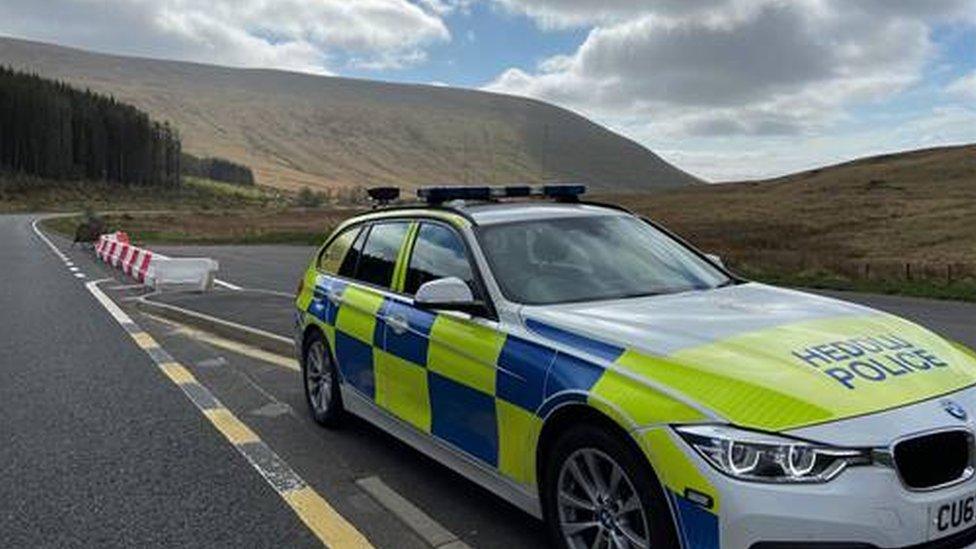
Dyfed-Powys Police said many of those it stopped were from England and thought lockdown restrictions were the same in Wales
At the start of June officers turned away more than 1,000 cars from a beauty spot in the Brecon Beacons after breaching lockdown rules to travel for a day out.
Dyfed-Powys Police said many people officers spoke to in the Brecon Beacons were from England who said they did not know about Wales' different rules.
While in England travel is now unlimited, in Wales people have to stay local, which is regarded as within five miles of their home.
One officer in the North Wales force said he had been "flagged down" by tourists from Bolton in the north-west of England, while on patrol in Snowdonia, who asked for sight-seeing recommendations.

Allow X content?
This article contains content provided by X. We ask for your permission before anything is loaded, as they may be using cookies and other technologies. You may want to read X’s cookie policy, external and privacy policy, external before accepting. To view this content choose ‘accept and continue’.

Gwent chief constable Pam Kelly said lessons needed to be learned about getting clear messages to the public that laws were different on each side of the border.
Ms Kelly also said backlogs in court cases needed to be prioritised after courts reopen.
They were closed because juries were not able to follow social distancing rules at the peak of the pandemic.
She said she was concerned victims would not come forward if they did not feel justice would be done quickly - and that "justice delayed is justice denied".
Policing and justice in Wales is the responsibility of the UK government, while it is devolved in Scotland.
But coronavirus regulations, many of which are enforced by police officers, are set by Welsh ministers as responsibility for public health is devolved to Wales.
Last year a commission led by Lord Thomas of Cwmgiedd - a former Lord Chief Justice, the most senior judge in England and Wales - said Wales should have full control of its justice system, with powers to run policing, prisons and appoint its own judges.
The Ministry of Justice dismissed the idea as too costly and said it would lead to significant duplication.
- Published3 June 2020
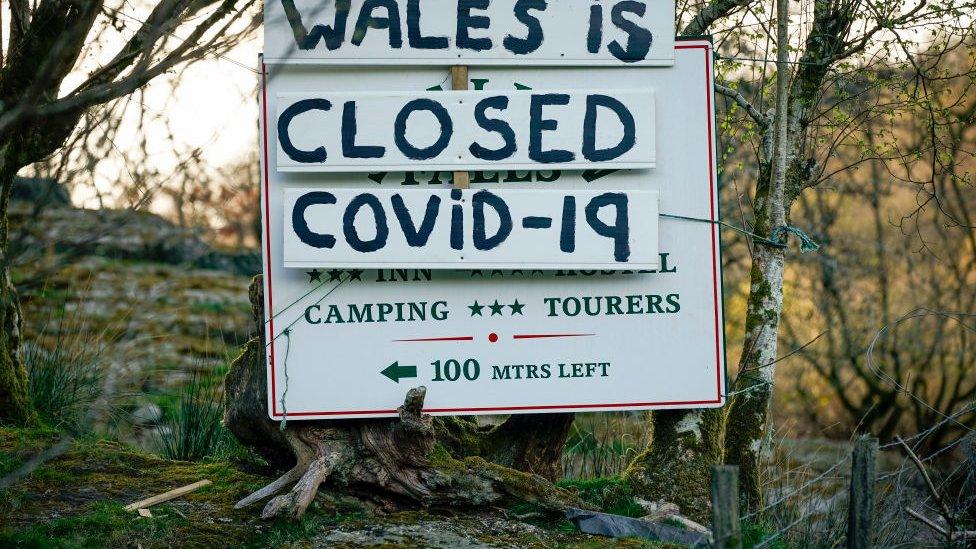
- Published15 April 2020
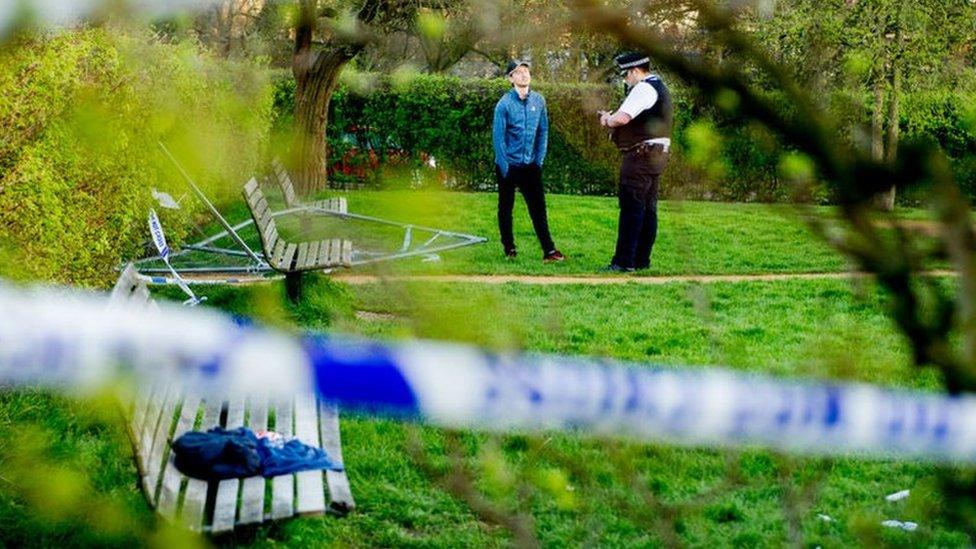
- Published7 May 2020
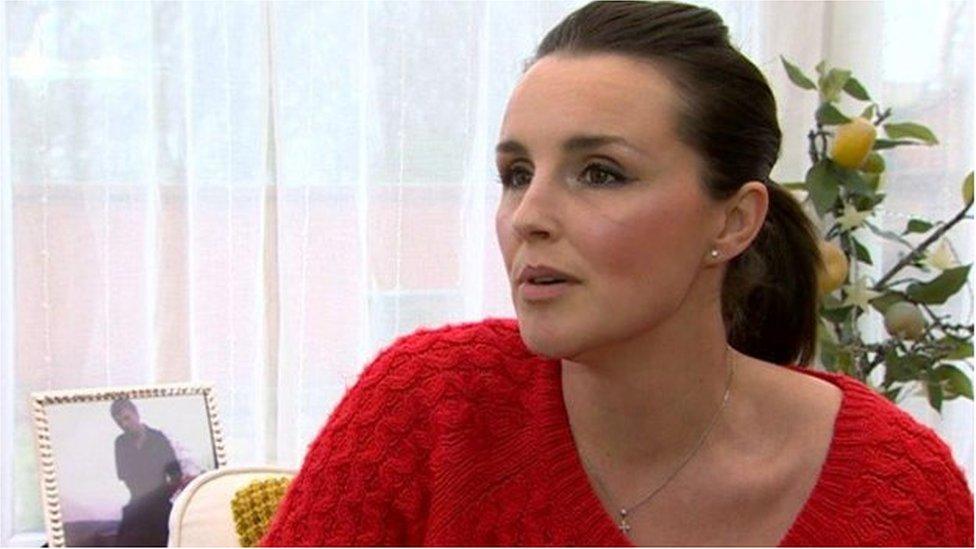
- Published15 May 2020

- Published30 May 2020
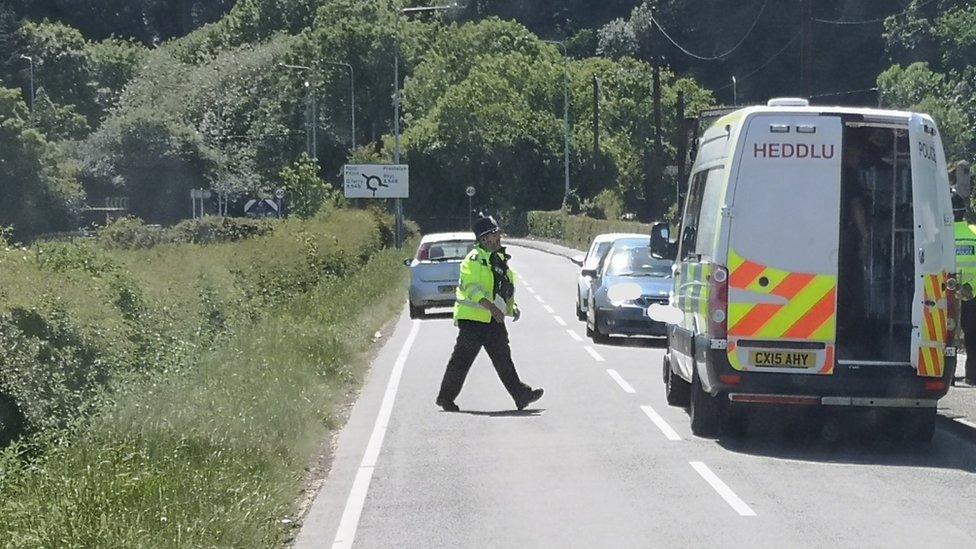
- Published30 March 2020
